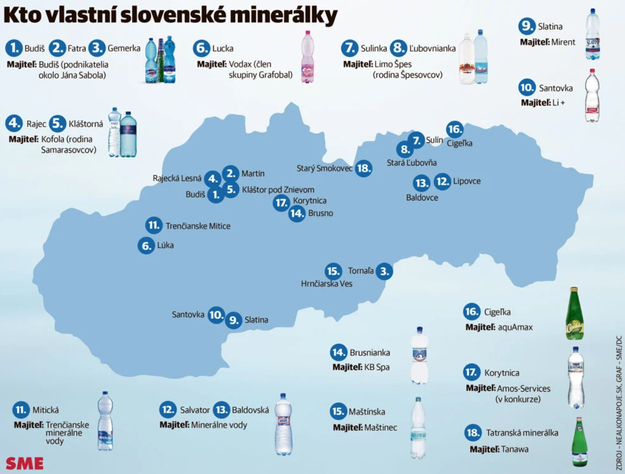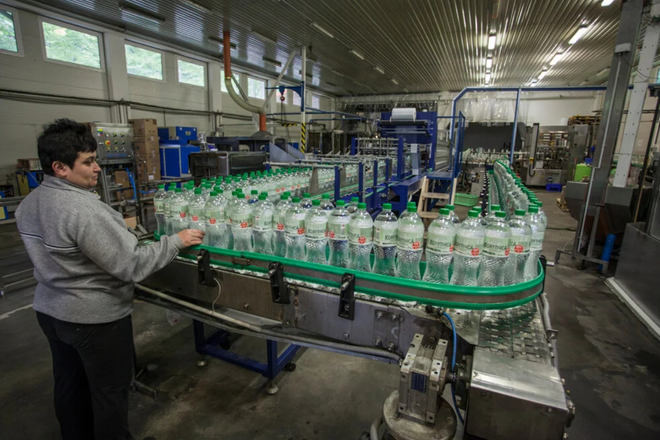Ten years ago, when the Polish company Muszynianka came up with a plan to export Slovak mineral water from the border village of Legnava through a pipeline, the Slovak government then headed by Robert Fico (Smer) proposed a constitutional law on water protection.
According to the law, water is a strategic source that may not be exported. Although the Polish company sued Slovakia for preventing them from doing business, they ultimately lost the dispute in 2020.
Although pipeline export is prohibited, water can still be exported in plastic or glass bottles. However, practice shows that this is not easy either. Even the most famous Slovak brands of mineral water manage to sell only a small part of their production abroad.
According to the Slovak Statistical Office, 43 million litres of natural mineral water without carbon dioxide, or in other words not sparkling, were exported from Slovakia last year, while in 2021 it was just over 29 million litres.
Who owns this "national treasure"? Index magazine summarizes the ownership background of Slovak mineral water. Financial groups, local businessmen and well-known controversial names surround them.
 Location and owners of Slovak mineral water brands. (source: SME)
Location and owners of Slovak mineral water brands. (source: SME)
Click on the image to expand.
Budiš, Fatra and Gemerka
Owner: Budiš (entrepreneurs around Ján Sabol)
Location: Budiš, Martin (both Žilina Region), and Tornaľa (Banská Bystrica Region)
2021 revenue: €45.3 million
2021 economic result: €530,000 in loss
In 1996, entrepreneurs around Ján Sabol, one of the wealthiest Slovaks, bought the company Stredoslovenské Žriedla that bottled Fatra and Budiš mineral waters, and later bought Gemerka as well. Coca Cola wanted to buy the well near Tornaľa, but the entrepreneurs beat them to it.
At first, Budiš did not do very well. In 1999, its CEO Ján Číž complained that they had major problems with exports. "We export mostly to the Czech Republic, but even that only sporadically." Despite this, Stredoslovenské Žriedla invested 20 million Slovak crowns (€667,000 in current money) in the construction of a new treatment station.



 Korytnica mineral water bottling plant in 2016. (source: TASR)
Korytnica mineral water bottling plant in 2016. (source: TASR)